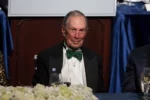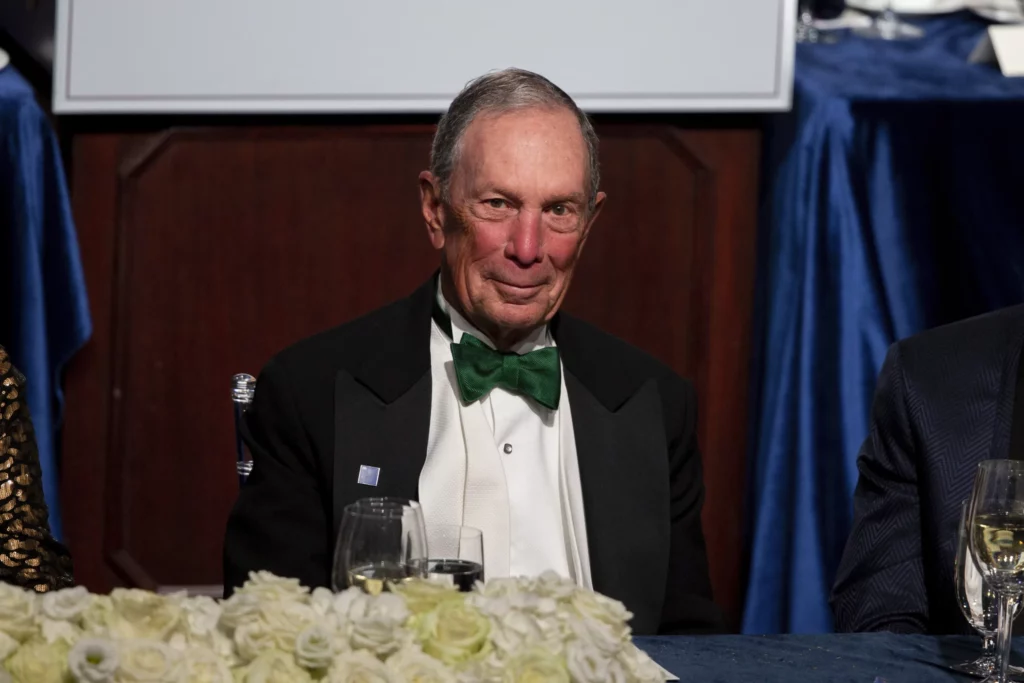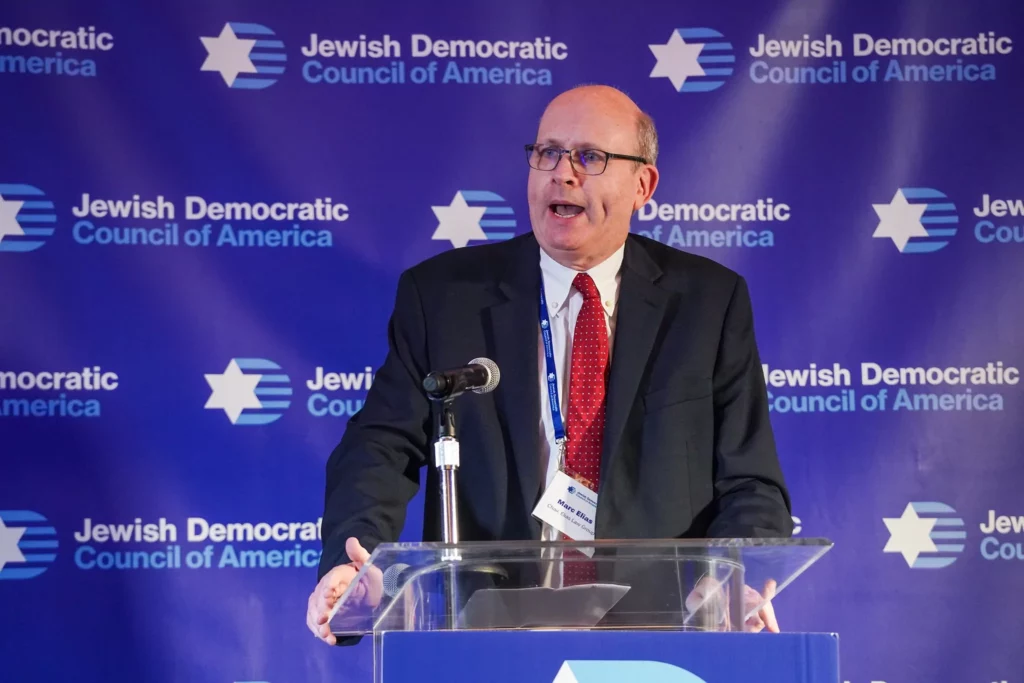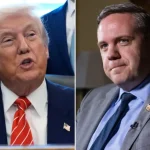
During the 2024 elections, political advertisers spent tens of billions of dollars trying to will their preferred candidates into office. The groundwork for this historic spending spree, however, was actually laid exactly 15 years ago.
The U.S. Supreme Court, on Jan. 21, 2010, opened the floodgates of campaign spending by striking down a ban on limiting corporations, unions, and other types of groups from placing independent expenditures to support or oppose candidates. The court’s 5-4 decision in Citizens United v. Federal Election Commission continues to divide Democrats and Republicans over key questions about wealth, political influence, and freedom of speech.
It has also served as perhaps the most consequential catalyst of so-called “dark money” in the history of U.S. elections, watchdogs say, particularly in the last cycle.
The 2010 decision, long celebrated by conservatives and condemned by progressives, overturned 100 years of laws and was predicated on the thinking of the justices that certain spending restrictions violated the First Amendment. Moreover, it has ushered in a sophisticated new era of campaign spending in the United States, igniting fears among the Left that, under a system embracing the appearance of less transparency, wealthy donors will play an outsized role in controlling elections.
To much of the Right, the court’s ruling in Citizens United helped restore the core American principle of free speech to elections.
Materially, Citizens United is responsible for the creation of what are now known as super PACs. These types of political action committees, which have exploded in growth since the 2010 decision, may spend and raise unlimited sums of money backing candidates, legislation, or ballot initiatives. They typically receive cash infusions from affiliated “dark money” groups registered under 501(c)(4), a section of the IRS code for tax-exempt entities that do not have to disclose their donors.
“The Citizens United ruling fundamentally reshaped the campaign finance landscape, enabling outside entities to wield unprecedented influence in elections in ways that were previously unimaginable,” said Anna Massoglia, a money-in-politics researcher and editor-in-chief of Influence Brief.
While super PACs and political nonprofit groups are required to operate independently from campaigns, the line separating the two has grown increasingly blurred, in part thanks to a March FEC opinion, Massoglia said.
HOW KAMALA HARRIS PLOWED THROUGH $1 BILLION
‘The data really tells the story’
Over the course of the 2024 election, nowhere was the influence of super PACs felt more than in the big money race between former Vice President Kamala Harris and President-elect Donald Trump.
In the GOP primaries, super PACs also played a prominent role in boosting candidates, such as Gov. Ron DeSantis (R-FL), whose allies poured over $145 million into a group called Never Back Down.

In the general election, deep-pocketed organizations such as Future Forward, Make America Great Again Inc., America PAC, and American Bridge 21st Century doled out checks on digital and TV ads, canvassing, and other efforts boosting Trump and Harris, respectively. Along with its tax-exempt arm, the pro-Harris group Future Forward reeled in hundreds of millions of dollars from Bill Gates, Michael Bloomberg, George Soros, and other left-leaning billionaires.
On the House and Senate side, behemoth groups such as Senate Majority PAC, Congressional Leadership Fund, Senate Leadership Fund, and House Majority PAC spent more than $933 million influencing the 2024 elections, federal records show.

“The data really tells the story” of how Citizens United reshaped campaign spending, said Brendan Glavin, the director of insights at the nonpartisan watchdog group OpenSecrets.
“In 2024, $4.3 billion was spent by outside groups — 13 times what was spent in 2008,” Glavin said.
That staggering funding is the culmination and product of a sustained operation since 2010 by Democrats and Republicans to build party infrastructure that aims to give candidates an edge come Election Day.
It is also, Glavin noted, thanks to a federal court’s 2010 ruling in the case SpeechNOW.org v. FEC, which removed donation limits on independent expenditures, such as ad buys.
Even as Democrats grew to embrace using the new post-Citizens United rules to compete in elections, progressive nonprofit groups have continued to critique the decision. The left-wing End Citizens United organization put out a press release this month pointing out that more than $300 million was spent in the 2024 election by wealthy pro-Trump donors who were since appointed to administration posts.
“We’re now living under an oligarchy,” said Tiffany Muller, the president of End Citizens United. “A small group of elites dominate both the private and public sectors.”
“These super PACs are financed by a small handful of individuals and entities,” Craig Holman, a lobbyist for the progressive Public Citizen think tank, told the Washington Examiner. “Citizens United has rendered the small-dollar donor almost obsolete.”
‘Political freedoms’
In the years following the controversial Citizens United ruling, the limits of what may be allowed under campaign finance law are being put to the test.
A new FEC opinion, issued in March of last year, sent shockwaves throughout Washington, D.C., where attorneys advising campaigns were gifted new tools in the post-Citizens United campaign finance framework to advise their clients.
The opinion, spurred by legal pressure from the bare-knuckle Democratic attorney Marc Elias, put forth that campaigns and PACs may coordinate on canvassing. It held that doing so does not constitute “public communications” — which the FEC classifies as advertising such as billboards, mass mailing, telephone banking, cable transmission, and more.

The March ruling was significant because it has long been understood, including in the post-Citizens United landscape, that it was taboo for campaigns to coordinate with outside groups such as super PACs.
The new lax rules were quickly seized on by allies of Trump, particularly the Elon Musk-backed group America PAC. The group spent over $250 million during the 2024 election, records show.
And the Trump campaign, eager to benefit from the new tools available under the law, entered into various data-sharing agreements with groups, in addition to canvas coordination with groups.
“The Supreme Court’s Citizens United decision recognized that the anti-corruption purpose of the Federal Election Campaign Act did not warrant restricting independent free speech, which we should value,” said Mike Columbo, a Republican campaign finance attorney at Dhillon Law Group. “Similarly, last year, the FEC decided that the law’s regulation of certain kinds of advertising did not warrant restricting healthy democratic activity in-person efforts to encourage people to vote.”
Both decisions “reflect a thoughtful interpretation of the law that respects our core political freedoms,” Columbo said.
CLICK HERE TO READ MORE FROM THE WASHINGTON EXAMINER
Glavin, the OpenSecrets researcher, said the new FEC ruling solidified what appeared already to be the case: Campaign spending will only keep increasing over time. The sky’s the limit.
“Considering the increasing role super PACs have been playing in traditional campaign activities and the 2024 FEC ruling that loosened coordination rules between campaigns and super PACs, we can fully expect the trend of increasing outside money in elections to continue,” Glavin said.







